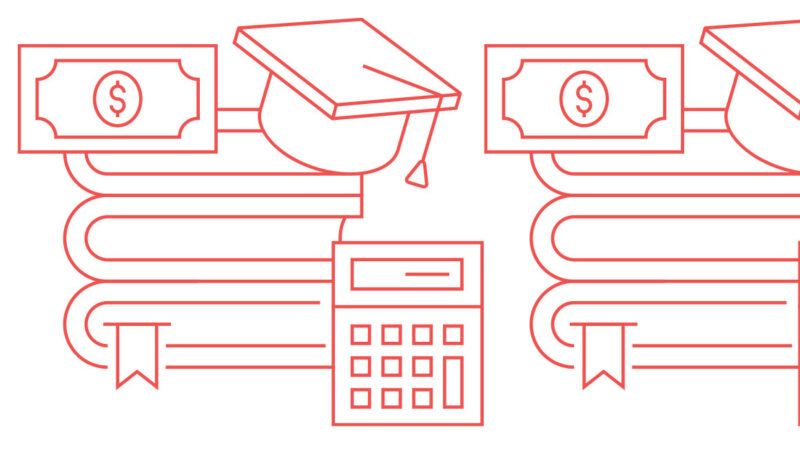Will Separation of Powers Doom Biden's Student Debt Plan?
Biden v. Nebraska has far-reaching implications for presidential power.

In 2020, the U.S. Supreme Court stopped the Trump administration from unilaterally rescinding the Deferred Action for Childhood Arrivals (DACA) program. The administration's attempted cancellation of DACA, which protects unauthorized immigrants who arrived in the United States as children, was "arbitrary and capricious" and exceeded the executive branch's lawful authority, Chief Justice John Roberts wrote for the majority.
In February, the Supreme Court heard Biden v. Nebraska, another case with far-reaching implications for executive authority. Unfortunately for President Joe Biden, the case reminded Roberts of his 2020 ruling against Trump.
At issue in Nebraska is Biden's 2022 plan to cancel up to $10,000 in student loan debt for every borrower who earns less than $125,000 a year. Pell Grant recipients would be eligible for up to $20,000 in debt relief. The plan would benefit more than 40 million borrowers and cost an estimated $400 billion.
According to "your view," Roberts told Solicitor General Elizabeth Prelogar during oral arguments, "the president can act unilaterally" and "there was no role for Congress to play in this either." Roberts seemed to have a problem with that view. "We take very seriously the idea of separation of powers and that power should be divided to prevent its abuse," he said. "There are many procedural niceties that have to be followed for the same purpose."
Things soon got worse for the Biden administration. "This case reminds me of the one we had a few years ago under a different administration, where the administration tried acting on its own to cancel the [DACA] program, and we blocked that effort," Roberts said. He did not need to add that he wrote the opinion in that case.
A few minutes later, the chief justice returned to the big questions about executive power raised by Biden's student loan plan. "If you're talking about this in the abstract," he told Prelogar, "I think most casual observers would say, if you're going to give up that much amount of money, if you're going to affect the obligations of that many Americans on a subject that's of great controversy.…that's something for Congress to act on." And if Congress hasn't "acted on it," Roberts continued, "then maybe that's a good lesson to say for the president, or the administrative bureaucracy, that maybe that's not something they should undertake on their own."
If Roberts really does view Nebraska in this way, and if at least four other justices see things similarly, Biden's student debt cancellation plan is probably doomed.



Show Comments (40)